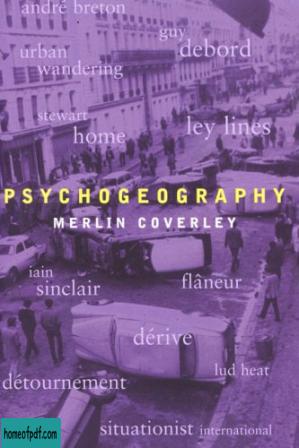Psychogeography (Pocket Essential series)
该资源由用户: 莲花自明 上传 举报不良内容

尊敬的读者:
欢迎您访问我们的网站。本站的初衷是为大家提供一个共享学习资料、交换知识的平台。每位用户都可以将文件上传至网盘并分享。
然而,随着用户上传的资料增多,我们发现部分不宜或版权问题的书籍被分享到了本站。
为此,我们已经关闭了分享入口,并进行了多次书籍审查,但仍有部分内容未能彻底审查到位。
在此,我们恳请广大读者与我们共同监督,如发现任何不宜内容,请 点击此处 进行举报,我们会第一时间处理并下架相关内容。
希望我们能共建一个文明社区!感谢您的理解与支持!
猜你喜欢

《设计模式之禅》秦小波文字版
View more
《设计模式之禅》秦小波文字版

《李娃》高阳
View more
《李娃》高阳

《玫瑰与蠕虫》罗伯特·伊巴图林白金版
View more
《玫瑰与蠕虫》罗伯特·伊巴图林白金版

《西方古典学术史(第三卷)》约翰・埃德温・桑兹文字版
View more
《西方古典学术史(第三卷)》约翰・埃德温・桑兹文字版

《药食两用植物:马兰》刘跃钧,潘心禾珍藏版
View more
《药食两用植物:马兰》刘跃钧,潘心禾珍藏版

《度心术:方寸之间大智慧》[唐]李义府珍藏版
View more
《度心术:方寸之间大智慧》[唐]李义府珍藏版

《一头想要被吃掉的猪》[英]朱利安·巴吉尼
View more
《一头想要被吃掉的猪》[英]朱利安·巴吉尼

《遇到百分之百的女孩》村上春树
View more
《遇到百分之百的女孩》村上春树

《盗墓笔记之沙海(1-4册全)》南派三叔珍藏版
View more
《盗墓笔记之沙海(1-4册全)》南派三叔珍藏版

《至暗时刻:力挽狂澜的丘吉尔》安东尼・麦卡滕文字版
View more
《至暗时刻:力挽狂澜的丘吉尔》安东尼・麦卡滕文字版

《弱传播:舆论世界的哲学》邹振东文字版
View more
《弱传播:舆论世界的哲学》邹振东文字版

《每天学点心理催眠术》徐润根 扫描版
View more
《每天学点心理催眠术》徐润根 扫描版


